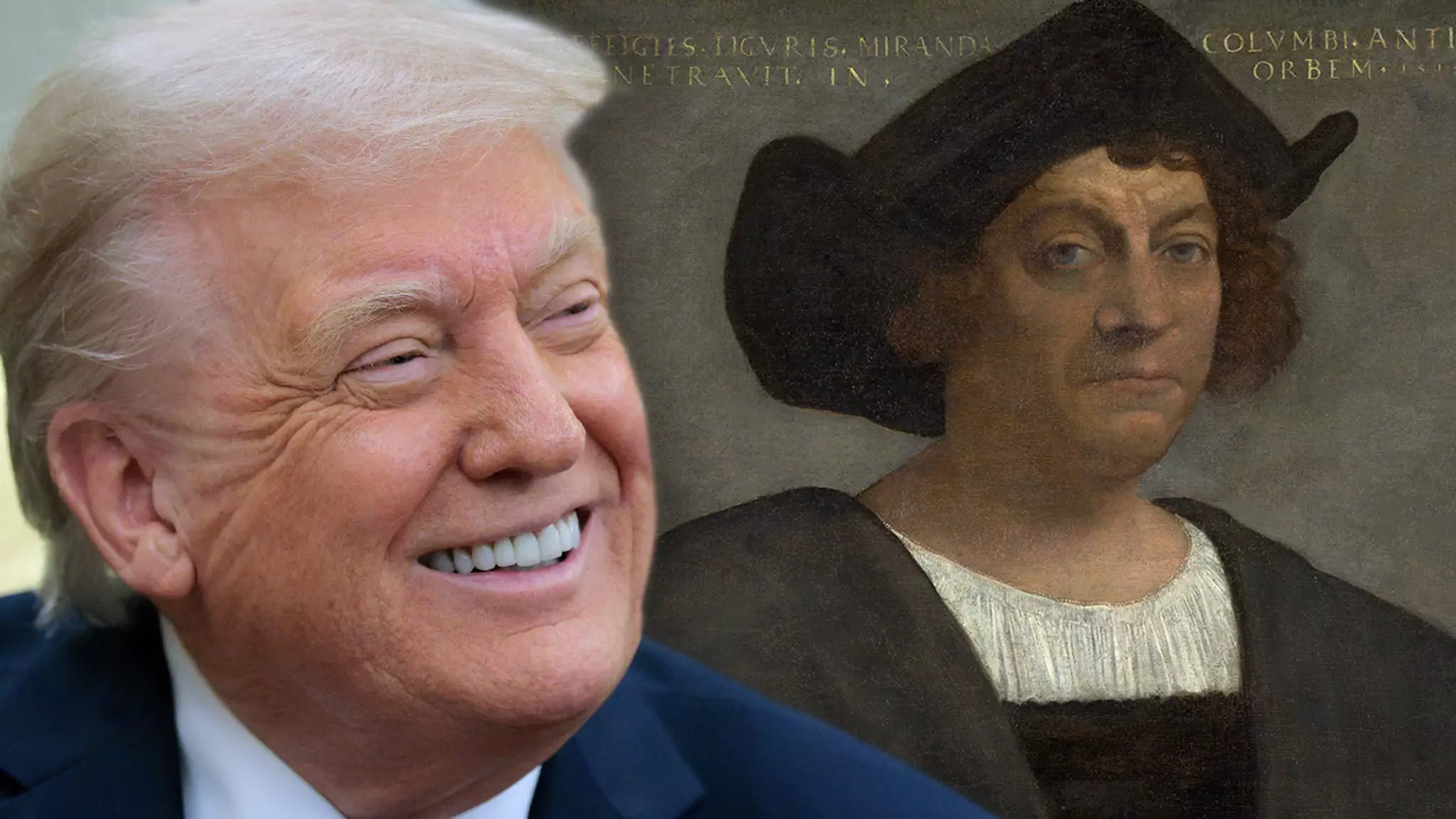In a fervent rallying cry aimed at his supporters, Donald Trump has boldly proclaimed his intentions to restore the once-celebrated legacy of Christopher Columbus, a figure now facing intense scrutiny from contemporary social movements. Via his Truth Social platform, Trump articulated a sense of indignation regarding what he perceives as an assault on Italian-American heritage and a coordinated effort by Democrats to tarnish Columbus’ name. This announcement, steeped in cultural symbolism, reveals not just a political maneuver, but also an attempt to galvanize a sense of identity among Italian-Americans, harkening back to nostalgic sentiments of honor and pride.
The Political Landscape of Columbus
For many, the legacy of Columbus has been muddied by a history fraught with colonial violence and exploitation. While Trump’s defenders laud him for championing a figure who, in their view, represents discovery and exploration, his critics highlight the barbaric realities faced by Indigenous populations as a direct consequence of European colonization. It’s fascinating to note that Trump seems to sidestep the complex narratives surrounding Columbus; instead, he selectively frames the discussion in a manner that vilifies those who advocate for a more comprehensive understanding of historical figures. This tactic reflects a broader trend of politicizing history to suit contemporary agendas.
Symbolism of Statues and Holiday Traditions
The fervor surrounding Columbus Day has heightened particularly as activist groups have made headlines for tearing down statues of Columbus and other colonial figures. Trump seized upon this cultural conflict, suggesting that “woke” activists are replacing the legacy of Columbus with symbols of social justice movements. By announcing plans to “bring back Columbus Day,” he positions himself in stark opposition to what he describes as an overwrought cancel culture. Yet, amid the clamor, it is essential to recognize that Columbus Day remains a federal holiday. The tension now lies in how various states and municipalities interpret this federal designation amid shifting social values.
Reclaiming a Legacy or Fueling Division?
Trump’s commitment to reigniting Columbus Day celebrations could serve as a double-edged sword. On one hand, he may invigorate a sense of belonging and appreciation among Italian-Americans who feel slighted by contemporary criticism of their historical hero. On the other hand, this revival risks deepening divisions, prompting further backlash from those who view Columbus as a symbol of oppression rather than a beacon of exploration. The potential for heightened polarization raises questions about the future discourse surrounding history and its representation in public spaces.
Pageantry and Public Sentiment
As Trump prepares for what he has promised will be a rejuvenated Columbus Day celebration, one can’t help but wonder about the broader implications. Will these festivities embrace the complexities of history, or will they settle into a performance of nostalgia that glosses over the painful truths of the past? As the nation approaches this holiday, it becomes increasingly vital to critically engage with the narratives we choose to celebrate—and those we choose to forget. With Trump’s intentions hitting the public consciousness, the discourse is set to heat up, reflecting more our present than our past. This moment offers a prime opportunity for a societal introspection about our historical figures and the legacy they leave behind.

